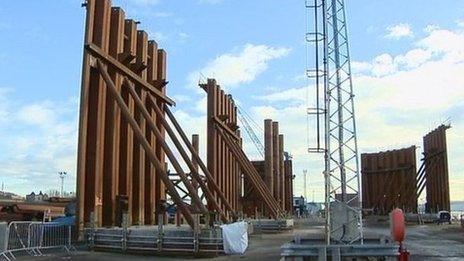Cleveland Bridge: Covid and political coup caused firm's failure
- Published
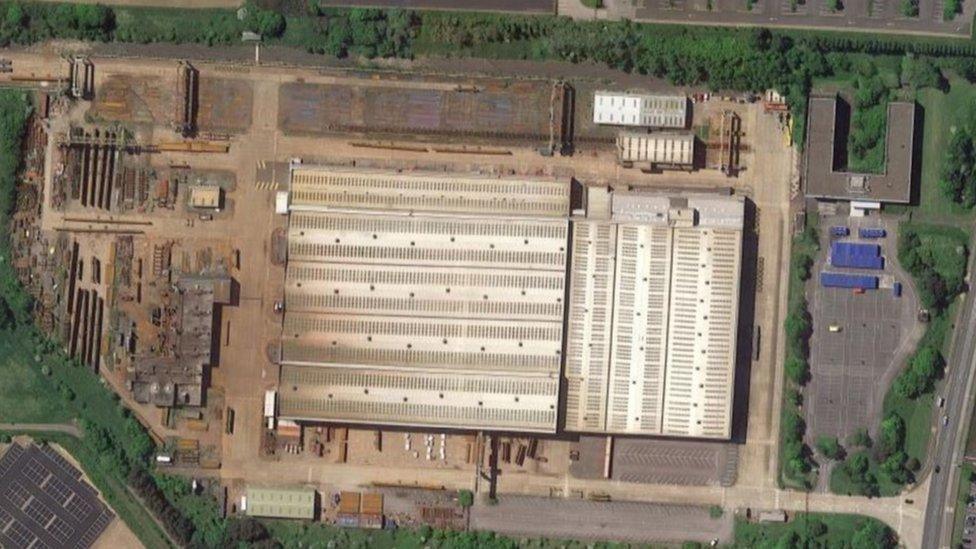
Cleveland Bridge is based in Darlington where it currently employs 139 people
The coronavirus pandemic, a political coup overseas and an estimation error over an £11m contract led to the collapse of an engineering firm, administrators have said.
Cleveland Bridge entered administration in July and, after a brief reopening, is set to close for good.
In a report, external, administrators FRP said the Darlington-based firm lost £3.62m in 2020 and has debts of £21.7m.
The firm currently employs 139 people, administrators said.
Cleveland Bridge was founded in 1877 and has helped build structures all over the world including Wembley Stadium's arch, London's Shard and Dubai International Airport.
The Darlington-based firm had been profitable until 2019 when it made a £157,000 loss, the administrators Martyn Pullin, David Willis and Iain Townsend from FRP said.
They said there were a number of reasons for the company's failure including:
A significant delay in projects starting due largely to the pandemic.
The need for overtime and agency workers when production on a number of projects did resume at the same time after the pandemic.
"Exceptional costs" of £1.7m in 2020 due to the pandemic.
Delay in beginning a "significant" overseas project due to a political coup, but the report did not specify which country.
An estimation error in the contract for an £11m project which resulted in zero gross profit, which made up the majority of production hours for the first three months of 2021.
"Significant" rise in the cost of steel.
Credit limits with suppliers were reduced "placing more pressure on working capital".
The report said forecasting showed a £12m investment would be needed to keep the company, which is owned by Saudi Arabian firm ARPIC, running until the end of 2021.
On 16 July, Cleveland Bridge's financial director told administrators ARPIC would not be providing any "further financial support" and the company "would therefore be unable to pay wages the following week" with "insolvency inevitable".
"All options were considered and it was decided the best way to preserve value was to seek a buyer for some or all of the company's business and assets," the report said.
The administrators said they thought a rescue of the company as a "going concern" would "not be achieved as the level of debt would be prohibitive to any potential purchaser", although they met with 30 "entities" to discuss a sale.
But they could "achieve a better result for creditors than would be likely if the company was wound up" by resuming production, which they did at the beginning of August and which brought in £1.4m, they said.
Short-term loans were also agreed to pay wages, the administrators said, with 104 staff back on site and 29 remaining on furlough.
FRP said they would continue to finish the existing projects, which are due to end in the week starting 20 September, and negotiate with potential buyers or, if a sale "is not achievable", sell assets by "piecemeal disposal or auction".

Follow BBC North East & Cumbria on Twitter, external, Facebook, external and Instagram, external. Send your story ideas to northeastandcumbria@bbc.co.uk, external.
Related topics
- Published9 September 2021
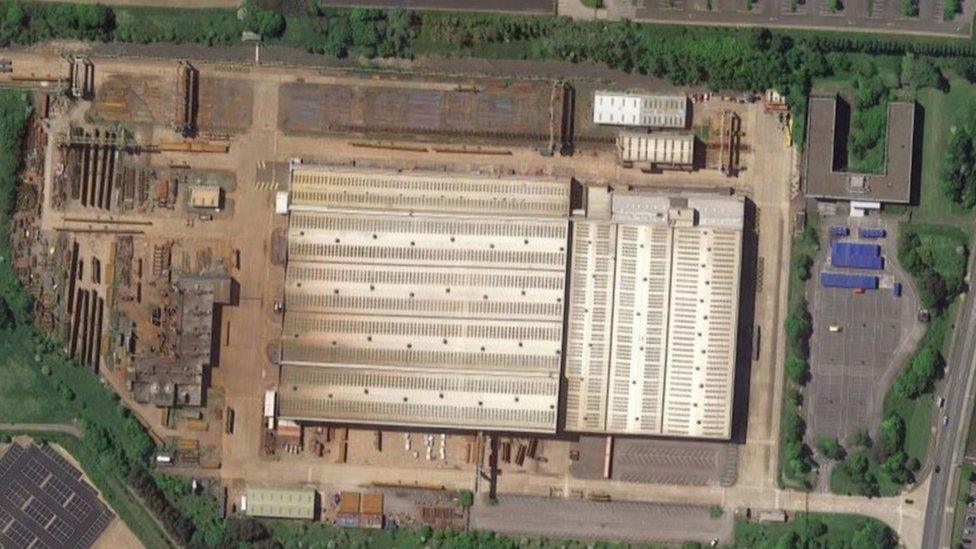
- Published31 July 2021
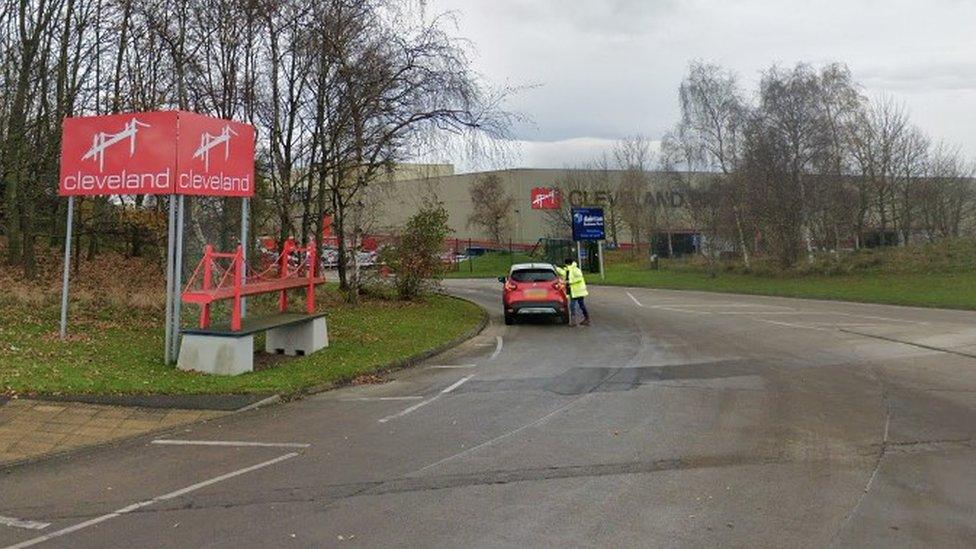
- Published21 July 2021

- Published3 October 2015
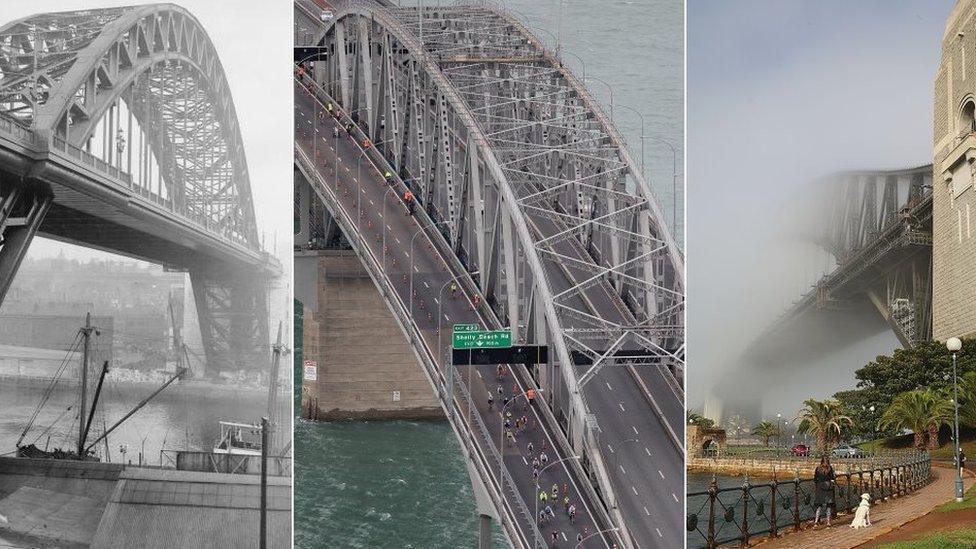
- Published20 May 2013
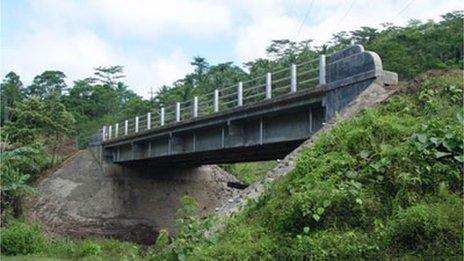
- Published17 December 2012
